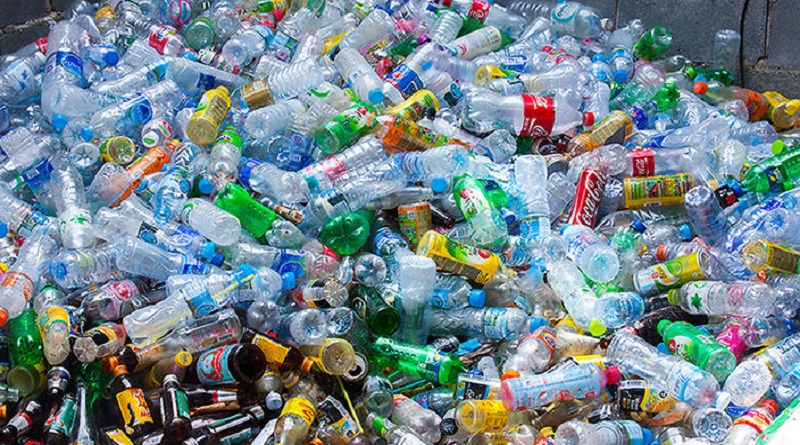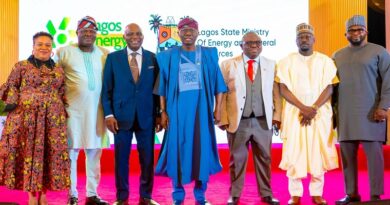SRADeV Nigeria calls for reduction in use of plastic as report reveals top polluters
Findings from the five-year plastic brand audit conducted by SRADeV Nigeria have revealed top ten plastic polluters in the country and globally.
The report’s findings listed Coca-Cola Company, PepsiCo, Rite Foods (Bigi), CWAY Group, Mr. V Water, Viju Industries, La Casera Company, Nirvana Table Water, Adbuk (sachet water), Seaman’s Schnapps (Intercontinental Distillers Ltd) as top ten global polluters.
These brands, according to the report, cut across soft drinks, sachet water, alcoholic drinks and packaging materials.
On a 5-year average of the waste characterization, the report read: “PET show that polyethylene terephthalate bottles, sachets) – 55 per cent, others (bottle labels, multilayer sachets, unknowns) – 25 per cent, LDPE (Low-Density Polyethylene – packaging films, wraps) – 10 per cent are most prevalent.
“With over 11,000 plastic items audited across six locations in Lagos State. We determined the list of “10 Top Polluters” primarily based on the number of these companies’ brands we found to be polluting the environment, while also taking into account the number of plastics collected per brand/manufacturer.
“Together, these metrics capture both the distribution and depth of plastic pollution associated with companies and their brands. To put it simply, these results reveal the companies polluting most places with the most plastics.
“PET bottles and multilayer sachet packaging clearly dominated the waste stream, while multilayer flexible packaging (often unbranded) is growing rapidly and poses major end-of-life management challenges.
“Food packaging (bottles and sachets): accounted for 89 per cent–99 per cent of total plastic pollutants audited in 2023 and 2024,” it read.
Speaking during media event on “National Campaign to Eliminate Plastic Pollution in Nigeria” under the auspices of the Break Free From Plastic (BFFP) movement and Global Alliance for Incinerator Alternatives (GAIA), SRADeV’s Executive Director, Dr Leslie Adogame, called on the top polluters highlighted in the report to lead the way in revealing how much single-use plastic they use, setting clear, public, measurable targets on how they will reduce the quantity of single-use plastic items they produce, and finally to completely reinvent their product delivery systems to avoid creating more plastic pollution.
The report, he said, has further reinforced the need for corporations in Lagos and Nigeria at large to accept responsibility for the full life-cycle impacts of their products and the packaging in which their products are sold.
“Waste management systems and environments in the city are suffering under the weight of a continued increase in the production of plastics, and consumer goods companies have an opportunity and an obligation to stop this crisis where it starts.
“Individuals and cities have the power to hold these brands accountable by demanding food, drinks, and personal care products that are either unpackaged or contained in reusable packaging.
“Responsibility for this plastic pollution problem lies not with individual “litterbugs”, but with corporate polluters who must adopt sustainable solutions and systems to stop the crisis. The time to turn off the plastic tap is now” he said
Adogame emphasized that It would be impossible for Nigeria to reduce plastic pollution without these brands making major changes to how they deliver their products.
“The time of relying on single-use packaging is over,” he said.
According to him, emerging trends have shown that sachet water and alcohol plastics are becoming a major menace in communities.
He said the forum was also being organized to mark the 2025 World Environment Day with “Beat Plastic Pollution” as its theme.
Adogame pointed out that sachet water packaging from Adbuk, Safrika, Nirvana is increasing in volume and has remained very difficult to recycle nor capable of existing EPR framework.
“Alcohol sachets from Seaman’s Schnapps and others, which were previously banned by NAFDAC, and now unbanned are re-emerging strongly.
“The same multinational and local brands continue to dominate the waste stream. Sachet economy continues to expand — water, alcoholic beverages, and condiments in Nigeria.
“People all over the world are rejecting single-use plastic and consumer goods companies are feeling the pressure so much so that many of them have made commitments that they claim will make their products more sustainable but largely protect the outdated throwaway business model that got us into this mess in the first place,” he said
According to Adogame, efforts by some top three polluters have underscored how far the consumer goods sector must go.
“Nestlé for example has committed to making all its packaging recyclable or reusable by 2025 but has no clear plans for reducing the total amount of single-use plastic (SUP) it puts into the world, and the company sells over a billion products a day in single-use packaging.
“Coca Cola has recently unveiled a single-use plastic bottle using plastic collected from the oceans, and in 2009 they promoted a plastic bottle made from plants. None of these products will stop or reduce Coke’s growing plastic pollution and reinforce the myth that single-use plastic can be sustainable.
“And finally, PepsiCo joined the Alliance to End Plastic Waste that brings together plastic producers, oil companies and other consumer goods companies to promote beach cleanups and improve recycling as a way to ensure future demand for petrochemicals to make more plastic.
” Efforts like these, and others focused on making packaging recyclable or compostable, do not get to the heart of the problem and all but guarantee the plastic pollution crisis will grow worse,” he said.
SRADeV chief said that in today’s Nigeria, the commitments of existing companies are simply not enough, reinstating the fact that unnecessary, problematic, and excessive single-use packaging is one of the most offensive and damaging applications of plastic.
“Our society is inundated with industry-sponsored messages about “litter” and “cleanups” that leave individual consumers believing and feeling guilty that they are the cause of the plastic pollution crisis.
Many of the solutions put forward by these brands and corporations focus on collection and recycling, despite years of persistently low and falling plastic recycling rates nationwide,” he said.
He commended the efforts of the Lagos State Government through the Ministry of Environment on the plan to fully enforce the ban on single-use plastics (Styrofoam food packs, disposable polystyrene cups, plastic straws, plastic cutlery, and nylon bags thinner than 40 microns) from July 1, 2025.
He however called for the inclusion of PET bottles, water sachets, or nylon bags thicker than 40 microns, which cannot be managed through an Extended Producer Responsibility (EPR) framework.




